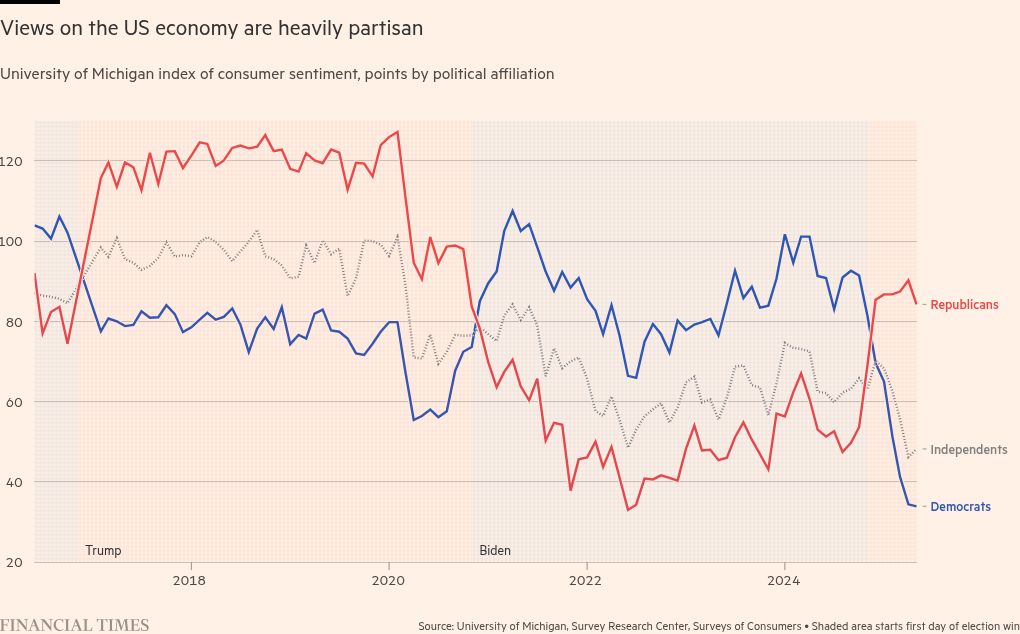Unlock the White House Watch newsletter for free
Your guide to what Trump’s second term means for Washington, business and the world
Republicans are souring on Donald Trump’s policies, pushing a closely watched measure of consumers’ confidence in the US economy to its second-lowest level on record.
The University of Michigan’s overall index of consumer sentiment tumbled to 50.8 in May, from 52.2 the previous month, while the expectations figure fell to 46.5 amid mounting fears that people could soon start to lose their jobs.
The poll also showed people’s expectations of inflation a year from now soared from 6.5 per cent to 7.3 per cent — its highest level since 1981 — as people bet that the Trump administration’s trade war would lead to a rise in prices.
Longer-term inflation expectations also edged up from 4.4 per cent to 4.6 per cent, as registered Republicans became increasingly concerned that tariffs would have an enduring impact on American prices.
“The flag over inflation expectations is bright red,” said Carl Weinberg, chief economist at High Frequency Economics.
The elevated expectations shown in Friday’s survey come days after data showed inflation hit a four-year low of 2.3 per cent in April. Figures on Thursday showed that producer prices tumbled last month, but that businesses’ profit margins were being squeezed as they absorb costs associated with tariffs.
The survey showed consumer sentiment for registered Republicans ticked down from 90.2 to 84.2, the lowest reading since November. An index tracking their economic expectations ticked down from 95.9 to 90.8, another six-month low.
While registered Democrats have long been negative on the president’s economic policy agenda, the poll indicates that the chaos following “liberation day”, which wiped trillions off global capital markets, also cost Trump support among his own party.
The readings were taken between April 22 and May 13, meaning that most respondents will not have factored in the impact of the détente between the US and China several days ago.
The truce lowered tariffs on one of the US’s biggest trading partners from 145 per cent to 30 per cent until mid-August.
Even if a permanent deal between Washington and Beijing were reached, Americans could still end up paying higher prices for goods and services. Walmart chief executive Doug McMillon warned that the world’s largest retailer was not “able to absorb all the pressure” and that “higher tariffs will result in higher prices”.
The pollsters said the final release would contain more information on whether the May 12 pause on China tariffs affected people’s expectations.
“It appears that households were more alarmed by the tit-for-tat escalation in tariffs with China than they were soothed by the reciprocal tariff pause for other countries or the drop back in energy prices,” said Alexandra Brown, North America economist at Capital Economics.
“Given the latest deal with China to reverse most of those prohibitively high tariffs, however, sentiment should soon rebound.”







